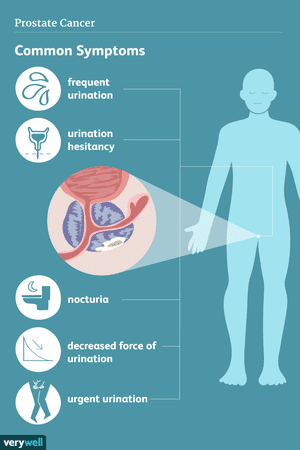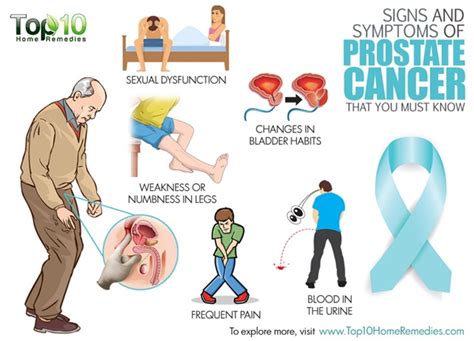
The symptoms of prostate cancer vary widely among men. Many of them are not the same as those of other health conditions. For example, a man may experience pain in his lower back, hips, or chest, but this does not necessarily mean that he has prostate problems. Other common signs include numbness or swelling in his legs and feet, a loss of appetite, and difficulty urinating. In addition, he may experience difficulty walking or having an erection.
The most common prostate cancer symptoms are pain in the chest and a sluggish flow of urine. Depending on the severity and type of prostate cancer, symptoms can vary widely. However, if a man experiences any of these signs, it’s best to get medical help. Depending on the stage of the disease, treatment may vary. In some cases, no symptoms are present. Other signs include a slow or weak flow of urine, frequent urination, and urinary tract infection.
There are two types of treatment options for prostate cancer: active surveillance and watchful waiting. The latter involves closely monitoring your condition and monitoring your symptoms. If the cancer is detected early enough, watchful waiting may be enough. If, however, the condition worsens, treatment may be necessary. Radiation therapy is another option, in which radiation is used to kill cancer cells. It may be delivered through an X-ray machine or through tiny radioactive pellets placed near the tumor.
In most cases, prostate cancer is asymptomatic. There is no specific way to tell whether or not you have the disease or not. But you can always ask your doctor if you have any of these symptoms. Your doctor can also recommend testing for PSA (prostate-specific antigen). While these are not the only ways to detect the presence of prostate cancer, they may be the best option. In addition to regular PSA tests, you should also ask your doctor whether you should have a yearly examination for screening.
If you experience symptoms of prostate cancer, it is important to see your doctor immediately. You should be checked regularly by your doctor, and if you notice any symptoms, you should seek treatment. If your doctors discover that you have the disease, you may be under active surveillance. During this time, your doctor will check your condition regularly. If your cancer has symptoms, the site https://productossaludes.com/

may recommend other treatment options for you.
Symptoms of prostate cancer may be vague or vary in appearance. Sometimes there are no noticeable signs of prostate cancer until it has spread to other parts of the body. In other cases, symptoms may occur after the infection has spread to other parts of the body. Some men will have no signs at all, and others will have no symptoms at all. Although signs of prostate disease may not be obvious in the early stages, if the cancer has spread, it is best to see a doctor as soon as possible.
The most common symptom of prostate cancer is difficulty urinating. An enlarged gland can cause pain in the testicles and bones. In some cases, the cancer has spread to other parts of the body and may cause these symptoms. Other symptoms include weight loss and sudden changes in a person’s appetite. If you have any of these symptoms, you should contact your doctor immediately. These symptoms may indicate prostate cancer, but they can also be signs of other diseases.
If the cancer has not spread to other parts of the body, prostate cancer symptoms can vary greatly. Because the gland is located near the bladder, it can affect the bladder and cause difficulty urinating. It may also cause blood to appear in your urine or semen. The most common signs of prostate cancer are a burning sensation when urinating and a frequent urge to urinate. Although this condition is not life-threatening, it should be evaluated.
Symptoms of prostate cancer include weakness or inability to urinate. Other signs of prostate cancer may include unexplained pain in the lower body. In addition to pain, men may also experience lower body swelling and pain in the lower torso. A man may have unusual bowel or urination problems or sudden weight loss. If these symptoms persist, contact your doctor for further evaluation. It is important to note that there are several ways to treat prostate problems.